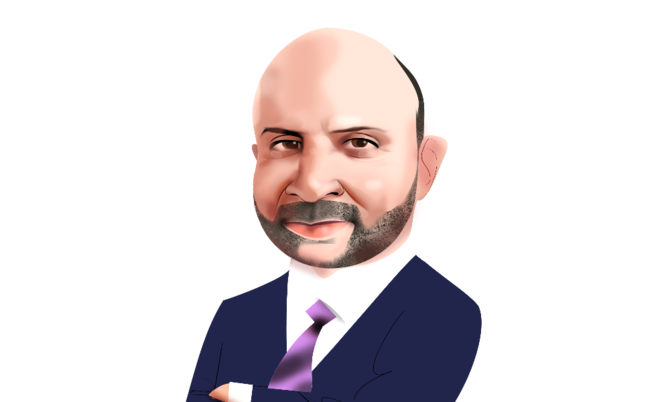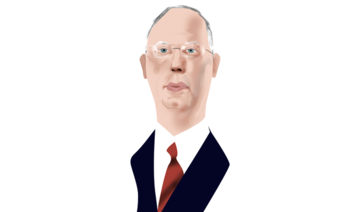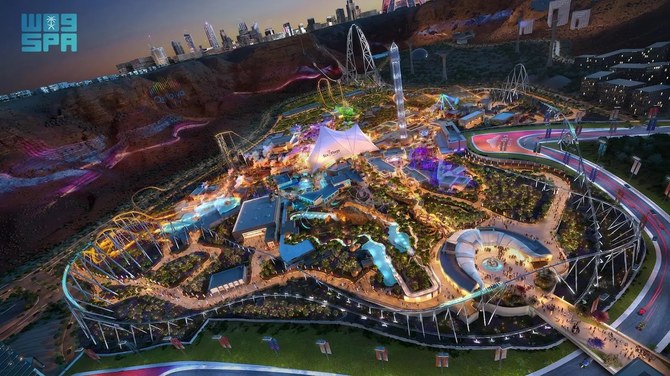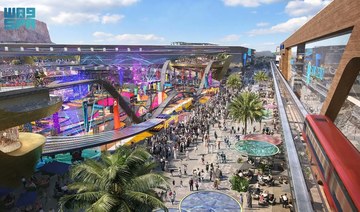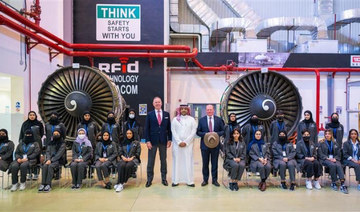DUBAI: Sachin Kerur’s job is to stop people fighting, but he is not a bouncer in a night club or a United Nations peacekeeper.
Kerur, who has just turned 50 years old, is a lawyer who specializes in dispute resolution and arbitration at Reed Smith, the big American firm that is among the oldest in the UAE. But he believes the best form of resolution is often to stop disputes seeing the light of day, or being fought out publicly in a law court.
“For clients today we’re talking as much about dispute avoidance, as bringing claims and suing people. A lot of the work we need to be doing is striving how to arrest a particularly nasty situation with a counterparty in as amicable a way as possible. It’s not all about rushing to court and arbitration,” he said.
But if it comes to a knuckle fight, Kerur is well equipped to slug it out with the toughest. After a long career in the UAE with another firm, he joined Reed Smith last year as managing partner of its Middle East business.
The aim was to beef up the firm’s disputes offering in the UAE, with a view to expanding in the rest of the region, including Saudi Arabia, the biggest legal market in the Middle East.
Reed Smith is a law firm of immense prestige and heritage, and has been operating in the Middle East since 1978. However, it felt the need to expand its offering in Kerur’s specialism at a time when some other legal and professional services firms have been cutting back their presence in the Gulf.
“Reed made a conscious decision to increase its investment in the region, broadly because some of its most prominent practice ares — energy, natural resources, transportation, commodities — are all part of the diversification of the regional economies. So the decision was taken to invest,” he said.
“That doesn’t come lightly in an era when some law firms have retrenched, so we’re slightly bucking the trend. Because of its history of the region, its knowledge of how things work, the cyclical nature of the demands of the region, I think from the very heart of the firm it has a commitment to this greater story.”
That commitment could soon extend into Saudi Arabia, he revealed. “We have not got a presence in Saudi at this moment, and I stress ‘at this moment.’ It would be inconceivable to think we would not do so in due course. If we were to open a presence in KSA in one shape or form it would definitely be one to connect with the Reed Smith business. We’re very bullish and I see no reason why we would not want to be in the Kingdom as soon as we can.
“We are investigating the prospect now and reviewing what possibilities are open to us,” he said.
People can sometimes be too simplistic and pessimistic in the way they view the region.
Sachin Kerur
Kerur believes that the close relationship between Saudi Arabia and the US is an incentive for his firm to do business in the Kingdom.
Until that happens, the UAE, with its increasingly sophisticated architecture for disputes resolution, will be the hub of the business in the Gulf and the wider region, taking in south Asia, where there is a growing demand for his expertise.
One of the most challenging cases in his career involved a long running multi-million dollar dispute between an Indian contractor and the government of the Maldives over a new airport on the islands. “It had so many dimensions to it — arbitration, ancillary proceedings in the Singapore high court, political dimensions,” he said, adding that he found the case “exhilirating.”
But the bread-and-butter work will continue to be in the UAE. The Emirates have invested a lot in the creation of a variety of arenas to avoid and resolve bitter legal disputes, and Kerur thinks that investment is paying off.
“I think we’ve seen a quantum leap in the UAE as a venue for dispute resolution. So it’s done well. I think there’s more that can be done. If you look at Singapore and how it manufactured itself a tremendous standing internationally as a center for dispute resolution, I think the UAE is not at that level yet, but we’re making huge strides there,” he said.
Parties seeking legal resolution now have a number of possible arenas, from the “offhsore” hubs in the Dubai International Financial Center and the Abu Dhabi Global Market, through to the local courts and arbitration centers in the UAE. Does he think onshore or offshore is better?
“Onshore courts still have a huge role to play, and they will remain a pillar of dispute resolution. In many instances they provide faster dispute resolution than other fora. They can be faster than offshore, and certainly faster than arbitration. For many folk it still remains a place where a commercial dispute can be resolved quickly,” he said.
“But where you have international counterparts, documents in English, and a degree of complexity that needs specialism, now you have alternatives in the offshore courts, and that’s the great beauty of what we’re seeing. You don’t see in many countries outside the likes of England and France, which have got hundreds of years of experience,” he added.
Some high profile legal cases have raised comments recently that the legal system in the UAE is loaded against foreign parties in favor of local litigants, but Kerur thinks this criticism is wide of the mark.
“I haven’t heard it quite as starkly as that. I think perception is one thing and reality is another. I’ve never been involved in a case where it’s as stark as that. I’ve been involved in situations where people are drafting contracts and they’ve been concerned about issues like that, and they will maybe veer toward a forum that avoids the local onshore courts because of that perception,” he said.
“Some people may have had bad experiences but often that’s because they’re on the losing side and they’re never going to have a good thing to say about the process. I wouldn’t want to be dismissive of these concerns. Those involved in developing dispute mechanisms in the region will want to take those on board, but I can’t say I have ever been in a case where it’s come own to the fact of a party’s nationality or their base that has been the pre-determinant factor in the result. I’m not saying it does not happen, but I haven’t seen it,” he emphasized.
The disputes business in the region to some degree follows the swings of the economic cycle. When times are tough, some businesses let payments slip, or fail to observe the detail of contracts, leading to an increase in legal disputes. So law firms are a good barometer of the overall health of the economy. What does Reed Smith’s current workload tell us about the UAE economy, which analysts say has been flat for a couple of years?
“The balance between dispute related work and transactional work is actually very healthy. We’re not seeing a complete fall off in transactional work. In fact, the level of restructuring work, refinancing and continuing corporate activity is healthier than some people think, particularly in the mid-cap market. So I wouldn’t want to give the impression that it’s all about disputes and that the wheels are coming off,” Kerur said.
But he agreed that the economy was not exactly booming. “Things have been flatter for longer than we may have seen for a while. But our barometer comes really from things such as company set ups, and we’ve seen an increase in the number of companies setting up. I think maybe the flatlining is over, but who knows? We’re subject to a geopolitical environment that can turn very quickly,” he said.
One of the big gripes of business people in the region, especially small to medium enterprises, is the failure of big companies, often with government links, to pay their bills on time. Kerur recognizes it as a concern, but believes it is not the only issue.
“People talk about non-payment, but I think delivery is the most common cause in the energy infrastructure — people delivering late. There is a consequence to this which is money related, but I think program delays are at the core of what we look at in construction-related disputes. Some of that comes from projects which are inadequately planned at the outset, not enough time is taken to understand the complexities of some of these significant undertakings. I don’t see that gratuitous refusal to pay that often. Non-payment is often linked to a series of other issues,” he said.
In any case, he believes there is a degree of misunderstanding about the region in the rest of the world that he finds frustrating.
“The region has gone through so many ups and downs, but it has survived and produced a lot of great commercial activity. People can sometimes be too simplistic and pessimistic in the way they view the region,” he said.



